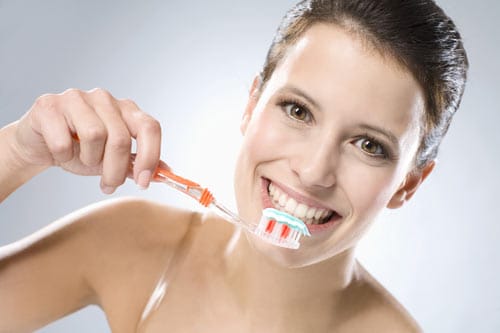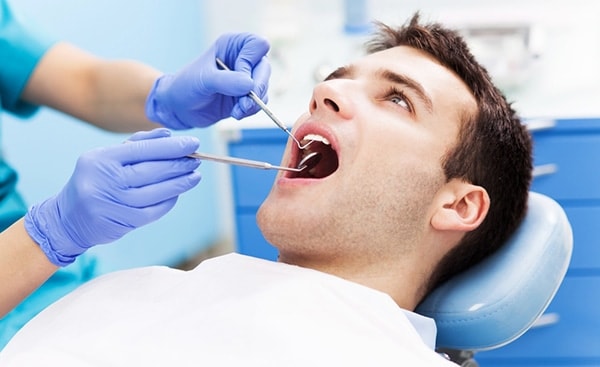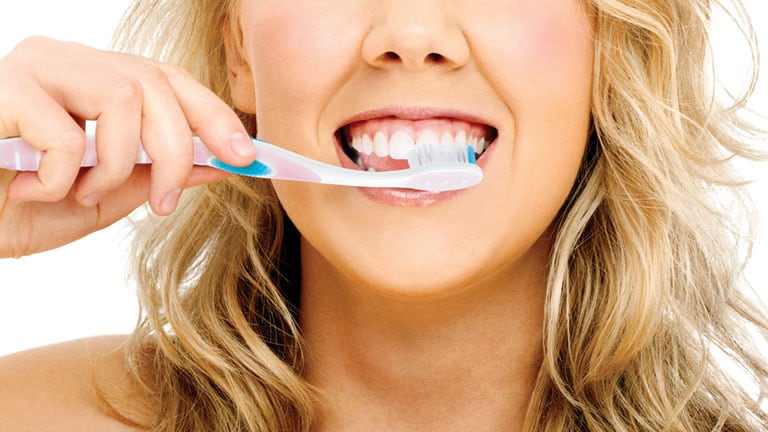As customers have become more informed about the products they use, there has been a significant shift towards natural, sustainable and “clean” oral care products. With the global market for natural cosmetics and personal care products set to hit $54.5 billion by 2027, we ask: how can dental professionals manage the growing customer demand for natural oral hygiene products?
What are natural oral care products?
What exactly makes a product “natural” or “clean”? Fans of natural products look for ingredients or materials that are found in nature, and are as close to that natural state as possible. A “clean” product is one that is produced in a sustainable and environmentally friendly manner, with minimal ingredients and no “chemical” additives.
It is important to note that “chemical” is not used here in its literal sense; all ingredients, including water, are technically chemical compounds. In terms of natural personal care products, though, “chemical” is often used to denote ingredients that are synthetically manufactured, highly processed, and/or perceived to be harmful.
Examples of natural oral hygiene products include:
Herbal toothpastes and mouth rinses.
Vegan or sugar-free products.
Toothbrushes made from bamboo or wood instead of plastic.
Products and packaging made from recycled or biodegradable materials.
Chewable toothpaste tablets.
Oral probiotics.
Managing the demand for natural products
According to a survey by consulting firm AlixPartners, 64% of consumers say that purchasing natural or clean personal care products is important to them. It is very likely, then, that dental students will encounter patients with such preferences, who may ask for their opinions or recommendations. When they do, the following points may be helpful.
1.Acknowledge the benefits.
Thanks to decades upon decades of scientific research, we can create oral hygiene products that are more effective and accessible than ever before. It can be bewildering to an oral health expert, then, when patients don’t want to use them! However, we must acknowledge that there are evidence-based benefits to many natural solutions, too. For example, aloe vera, calendula, tea tree oil and baking soda have all been shown to reduce gingival and plaque indices.
There is also the issue of environmental impact. Those who favor recyclable or sustainable materials should be applauded for their efforts to cut down plastic use and waste, while those who use toothpaste tabs are doing their part to cut down water usage. The benefit of these activities goes far beyond oral health and should be fully encouraged by dental professionals.
2. Discuss fluoride.
You’re armed with knowledge about natural care products and their benefits, but it’s also important to understand their limitations. One prominent example is fluoride.
Misconceptions about the safety and efficacy of fluoride have picked up traction in recent years, particularly in natural care communities. As a result, some people prefer to use toothpastes without fluoride.
While all major dental health organizations believe fluoride to be safe, effective and necessary in oral health, it is important that we are open to hearing our patients out. Shutting down the topic can further fuel skepticism, so be sure to invite an open discussion, acknowledge your patient’s concerns, and support your recommendations and assertions with up-to-date evidence.
3. Be prepared with recommendations.
Research natural products for different needs that you would be confident recommending to your patients and have them to hand. For example:
If your patient is concerned about the use of animal ingredients or excessive additives, you could recommend products from the Colgate Zero range. We have a range of certified vegan, gluten-free toothpastes and mouth rinses, with minimal ingredients and no artificial colors or flavors.
If your patient is concerned about sustainability, you could recommend a toothbrush like the eco-friendly Colgate RecyClean Toothbrush or Colgate Bamboo Toothbrush. Both are made with plant-derived bristles and recyclable packaging. The RecyClean brush has a 100% recycled plastic handle, while the bamboo brush has a biodegradable, ultra-sustainable bamboo handle.
If your patient wishes to use natural abrasive agents like sea salt to remove stains, recommend a gentler baking soda toothpaste instead, like Colgate Deep Clean With Baking Soda Toothpaste. Explain that a study in Oral Health and Preventive Dentistry found that adding sea salt to toothpaste can cause high dentin wear and does not provide any additional benefits.
Being a trusted partner in our patients’ oral care, it’s our job to provide them with all the facts they need to make fully informed decisions. With the demand for alternative hygiene products only set to increase, now is the time to learn more about this growing market so we can help our patients make the best choices for their oral health.






Was this article helpful?
If you’d like a response, Contact Us.